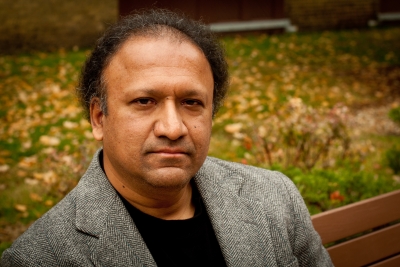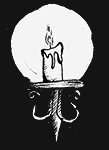
István Schubert: What makes you motivated in taking care of a late authors work? Is it about passion, or is it something else?
No one could possibly have done the amount of work on Lovecraft that I have done without feeling passion—and for me, that passion emerged very early in my life and has remained intense over all these subsequent years. I first read Lovecraft at about the age of 13 or 14 and was immediatly fascinated—not only by his hypnotic prose, by the extremely bizarre images and conceptions found in his stories, and by the skill and artistry with which he expressed his vision of the universe, but by the man himself. As I started to learn more about Lovecraft, I felt an uncanny similarity between some of his views and my own—from trivial things such as a fondness for cats to more significant things such as atheism, traditionalism (or, more specifically, an understanding of the importance of the historical tradition to culture and society), and many other things. (Of course, I not a racist, as Lovecraft was!) I was also inspired to work on Lovecraft by my fervent belief that he was undervalued as a literary and cultural figure; and even when I was a teeanger in the 1970s, I felt I might help to bring Lovecraft to the attention of the broader literary community and to demonstrate why he should be regarded as a significant writer and thinker.
I.S.: I’s a simple question, but maybe you will be the one, who can answer it the simplest way: What kind of person was he?
Lovecraft was an extremely complex individual (as his thousands of letters indicate), and it is not easy to encapsulate him in a few sentences. It would be best to think of Lovecraft as: insatiably curious about many realms of knowledge (science, literature, history, the arts, etc.); emotionally reserved, as befits his upbringing in New England as a member of an informal aristocracy of class and privilege; kind and generous to others (generous not in terms of money, since he had little money, but in terms of his advice and expertise); a genial companion to his friends, and tolerant on most issues (except the matter of race); intensely devoted to sincere literary expression, and unalterably opposed to compromising on his high standards of literary art.
I.S.: Have your ever wondered, what would meeting Lovecraft be like? What would be the first thing you would say?
Naturally, I would have loved to meet Lovecraft. Since I myself have followed his footsteps in becoming fascinated with such things as classical antiquity, architecture and literature of the 18th century, cats, and atheism, we would no doubt have much to talk about. I am confident that Lovecraft would have „forgiven” me for not being a Caucasian! In fact, he had no problems with members of other races if they had accepted the cultural norms of Western Civilisation, as I have done.
József Tomasics: What is the significance of Lovecraft? What has he given us with his work? How should we look at his legacy, if we want to understand him? If we want to get closer to him, as a person?
Lovecraft’s signature contribution to literature—and perhaps to philosophy—is cosmicism, which I will discuss in greater detail in the next question. This understanding of the immensity of space and time and the inconsequence of human beings (and all earth life) in the universe is an immense departure from the perspective of most other writers and philosophers in human history, and Lovecraft’s expression of it in his powerful and artistically finished stories sets him apart from nearly all other writers in history. He created a revolution in the genre of weird fiction, discarding hackneyed motifs such as the vampire, the werewolf, the ghost, and the haunted house, and initiating a new kind of weird fiction suitable for an age of scientific advance. It should also be emphasised that Lovecraft was an incredibly skilled writer—on the level of prose and of story construction. From a purely artistic point of view, his stories are nearly perfect.
J.T.: Maybe there’s no proper answer, but what do you think, how should cosmic horror be interpretated? Can we even define this subgenre, or it must be answered by someone’s subjective opinion?
Cosmic horror refers not merely to the portrayal of the vastness of the universe but also to humanity’s position of unimportance within the cosmos. It is rare to find the „cosmic quality” in works prior to Lovecraft, and only random stories by Edgar Allan Poe, William Hope Hodgson, and a few others can be considered anticipations of Lovecraft’s approach. What cosmic horror entails is a fusion of traditional supernaturalism with science fiction—because such stories must be based on the most up-to-date science and must also speculate on possible advances in science, such as time-travel or space-travel. But even in his most science-fictional tales, such as „The Shadow out of Time,” Lovecraft is careful never to abandon the element of terror—terror at the realisation of humanity’s unimportance and transience in the universe.

Mary Wilson and S. T. Joshi, October 2012. Photo by Emily Marija Kurmis.
Gyula Vidra: Lovecraft’s stories don’t really have comforting lessons. Can we find positive approaches between the lines, that represent any sort of values, or we would search for this in vain?
It is true that, properly understood, Lovecraft’s stories are quite „depressing.” In many cases, the „horror” in Lovecraft’s stories is merely the realisation that something supernatural has ocurred, or that humanity can no longer be considered the rulers of the earth. But that realisation itself can be in a sense liberating, because it provides a truer sense of our place in the cosmos than the false sense of our importance that religion provides. A certain humility as to our position on this earth is always a welcome development!
Gy.V.: Is there any interesting or important fact about Lovecraft’s work, which you think is a misinterpretation, apart from people merging the Cthulhu-myth created by August Derleth with Lovecraft’s name? Is there anything about him personality, which suprised you, while you were researching his life and his letters?
One of the things that most strikes me, especially when reading Lovecraft’s letters, is that he actually had a tremendous sense of humour. Often, that humour is very „dry” or subdued, but it is present even in his stories, in spite of the fact that he himself claimed that humour and horror do not mix well. Lovecraft was anything but an unhappy, depressed individual: he enjoyed life (especially writing, travelling, and learning) tremendously, and he lived intensely—with keen appreciation of art, literature, history, and landscape—in a way that few of us do. He conveyed that intensity in everything he wrote.
Gy.V.: What do you think, would it be for the benefit of the author’s legacy, if it became mainstream? I mean if it could reach the whole world with more adaptations for the big screen, more editions of the books, more products, like toys, etc., not just some particular groups.
Lovecraft has already become mainstream to a certain extent, and his work is now published around the world in many languages and in prestigious editions. In the United States, he has at last come to be regarded as a significant writer of the twentieth century, and his place in the history of weird fiction is unassailable. He is also a constant presence in popular culture, and today everyone is now expected to understand what „Cthulhu” means or represents. I myself would like to see more of his letters published, because those letters reveal his true greatness as a writer, thinker, and human being: they are incredibly intimate documents that expose all his attitudes, beliefs, and feelings in a poignant and fascinating manner. And yet, I would not wish Lovecraft to become fully mainstream: he is a truly subversive figure, and his cosmicism and atheism will always place him in a small minority of writers and thinkers. Weird fiction itself is a subversive genre, and should remain so.
Gy.V.: All the film adaptations so far lacked professional support. It’s a rhetorical question, but what is the reason for this? Is it just negligence, or Lovecraft’s works are impossible to adapt into a true and authentic movie? Have they ever contacted you regarding this or asked you to get involved?
When Lovecraft’s works were first adapted for film, in the 1960s, horror movies were regarded as a „low” form of art, designed only for popular consumption. It is only in recent decades, with such directors as Stanley Kubrick and Guillermo del Toro, that weirdness and fantasy can be expressed in films of high art and polish. I think Lovecraft is on the brink of a „big-budget” movie adaptation: whether or not del Toro proceeds (as he now hints that he might) on his film of At the Mountains of Madness, I think we will see some major film of his work in the coming years. It is certainly true that many of Lovecraft’s stories are difficult to adapt because (a) much of their effectiveness is the result of a skilful use of prose, and (b) there is not a great deal of „action” in many of his tales. But other tales do have plenty of action and a sense of dramatic conflict, and it will take a skilled director to bring it successfully to the screen.

S. T. Joshi, October 2012. Photo by Emily Marija Kurmis.
TBA: Which one do you think is the best piece of his work, and why?
I have always believed that At the Mountains of Madness is Lovecraft’s most artistically finished story. It develops incredible cumulative power as it proceeds, and its final scene—the confrontation with the shoggoth—is to my mind the single most terrifying passage in all literature. And yet, I understand that this story is somewhat „dense” and difficult to read, because of its heavy use of scientific terminology. „The Shadow out of Time” is a close second, because it too expresses cosmicism with incredible power, and is more accessible because the scientific baggage is not quite so heavy.
TBA: It’s always hard to answer, which story should a reader start with. What is your recommendation to a person, who you’d like to introduce to Lovecraft’s real work? Which story would that be?
I see no reason why a reader should not begin with „The Call of Cthulhu.” This story of course outlines the Cthulhu Mythos, and does so in a manner that is easily understandable. It is also a story that, like At the Mountains of Madness, proceeds to a spectacular climax at the end. If someone wishes to start with a story that does not have the pseudo-mythological framework, I would recommend „The Rats in the Walls,” which is a nearly perfect instance of short story technique and also manipulates traditional Gothic motifs in a very skilful way.
István Schubert, József Tomasics, Gyula Vidra
